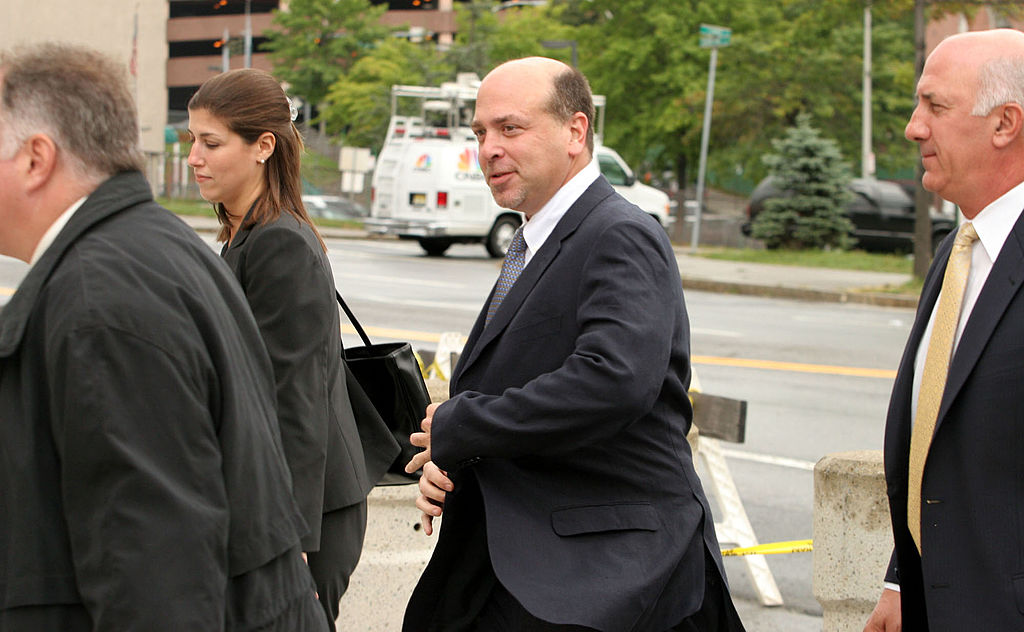Great frauds in history: Samuel Israel and Bayou Group
Samuel Israel's investment returns weren't all that they appeared to be as investors learnt to their cost.


Get the latest financial news, insights and expert analysis from our award-winning MoneyWeek team, to help you understand what really matters when it comes to your finances.
You are now subscribed
Your newsletter sign-up was successful
Want to add more newsletters?

Born in Louisiana in 1959, Samuel Israel came from a stockbroking family. His grandfather founded a commodities firm that was sold for $42m in 1981. Despite failing to graduate from university, Israel's family connections ensured he got a job as a junior trader at several Wall Street firms, including a minor role at the hedge fund Omega Partners, run by the billionaire Leon Cooperman.In 1996 he set up the Bayou Group, a hedge fund that claimed it had developed a unique trading system that could turn $300m into $4bn within a decade.
How did it work?
It seems that initially Israel legitimately tried to beat the market using his system. However, poor performance meant that the firmmade substantial lossesin its first year of operation, despite the fact that theoverall stockmarket was rising. Israel then tried to hide the fund's losses by handingback the commissions that Bayou's brokerage operations made from the fund's trades.
By 1998 even this tactic wasn't working, and he turned to outright fraud, even setting up a phoney auditing company (with the aid of the fund's accountant Dan Marino) to produce fake profit statements.
Try 6 free issues of MoneyWeek today
Get unparalleled financial insight, analysis and expert opinion you can profit from.

Sign up to Money Morning
Don't miss the latest investment and personal finances news, market analysis, plus money-saving tips with our free twice-daily newsletter
Don't miss the latest investment and personal finances news, market analysis, plus money-saving tips with our free twice-daily newsletter
What happened next?
By 2005 the gap between the fund's reported assets and its actual assets had grown to a huge level, thanks to bad investments (including to a man claiming to be a secret agent) and also to Israel and Marino taking money from the fund for their own personal use (disguised as commissions paid to the brokerage).
Investors started to get suspicious and demand their money back, prompting the duo to mail out redemption cheques, which bounced. In 2008 Israel was convicted of fraud and sentenced to 20 years in prison. He attempted to evade prison by faking his own death and can't be released before 2027.
Lessons for investors
Even if you count the $18.4m that was paid out by a hedge fund that had invested in the scheme but withdrew early, only $60m of the $450m invested in the fund in its nine years was recovered. Bayou's promise that to turn $300m into $4bn within a decade (an annual return of over 30%) should have raised some red flags, as should evidence that Israel exaggerated his CV, including his role at Omega Partners.
Get the latest financial news, insights and expert analysis from our award-winning MoneyWeek team, to help you understand what really matters when it comes to your finances.

-
 Review: Pierre & Vacances – affordable luxury in iconic Flaine
Review: Pierre & Vacances – affordable luxury in iconic FlaineSnow-sure and steeped in rich architectural heritage, Flaine is a unique ski resort which offers something for all of the family.
-
 Could you get cheaper loans under ‘significant’ FCA credit proposals?
Could you get cheaper loans under ‘significant’ FCA credit proposals?The Financial Conduct Authority has launched a consultation which could lead to better access to credit for consumers and increase competition across the market, according to experts.
-
Christopher Columbus Wilson: the spiv who cashed in on new-fangled radios
Profiles Christopher Columbus Wilson gave radios away to drum up business in his United Wireless Telegraph Company. The company went bankrupt and Wilson was convicted of fraud.
-
 Great frauds in history: Philip Arnold’s big diamond hoax
Great frauds in history: Philip Arnold’s big diamond hoaxProfiles Philip Arnold and his cousin John Slack lured investors into their mining company by claiming to have discovered large deposit of diamonds. There were no diamonds.
-
Great frauds in history: John MacGregor’s dodgy loans
Profiles When the Royal British Bank fell on hard times, founder John MacGregor started falsifying the accounts and paying dividends out of capital. The bank finally collapsed with liabilities of £539,131
-
Great frauds in history: the Independent West Middlesex Fire and Life Assurance Company's early Ponzi scheme
Profiles The Independent West Middlesex Fire and Life Assurance Company (IWM) offered annuities and life insurance policies at rates that proved too good to be true – thousands of policyholders who had handed over large sums were left with nothing.
-
 Great frauds in history: Alan Bond’s debt-fuelled empire
Great frauds in history: Alan Bond’s debt-fuelled empireProfiles Alan Bond built an empire that encompassed brewing, mining, television on unsustainable amounts of debt, which led to his downfall and imprisonment.
-
 Great frauds in history: Martin Grass’s debt binge
Great frauds in history: Martin Grass’s debt bingeProfiles AS CEO of pharmacy chain Rite Aid. Martin Grass borrowed heavily to fund a string of acquisitions, then cooked the books to manage the debt, inflating profits by $1.6bn.
-
 Great frauds in history: Tino De Angelis’ salad-oil scam
Great frauds in history: Tino De Angelis’ salad-oil scamProfiles Anthony “Tino” De Angelis decided to corner the market in soybean oil and borrowed large amounts of money secured against the salad oil in his company’s storage tanks. Salad oil that turned out to be water.
-
 Great frauds in history: Gerard Lee Bevan’s dangerous debts
Great frauds in history: Gerard Lee Bevan’s dangerous debtsProfiles Gerard Lee Bevan bankrupted a stockbroker and an insurer, wiping out shareholders and partners alike.